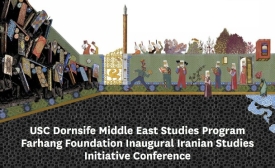iran
Israel’s public diplomacy has so far focused on what many have said was an unrealistic demand for the complete dismantlement of Iran’s potentially military nuclear infrastructure. Softening that position, Israel’s minister of intelligence and strategic affairs, presented a list of desired modifications for the final agreement.
And so it came, after years of protracted negotiations, extended deadlines and a diplomatic dance of unprecedented proportions – a deal that could signal a new era for Iran’s relations with the world. (...) Beyond the technical details of the agreement lies a triumph of diplomacy and the potential, if not for a realignment of US interests in the Middle East, then certainly a significant adjustment which has concerned its traditional allies in the region.
The Arab Summit, held recently at Sharm El-Sheikh, can be the beginning of a new phase in joint Arab action and the credibility of Arab countries if decisions are translated into reality.
Negotiators appeared to be moving wearily on Thursday toward a preliminary accord on limiting Iran’s nuclear program, but they remained at odds about how specific that agreement would be. Mohammad Javad Zarif, Iran’s foreign minister, suggested the accord would take the form of a general statement that he would issue publicly with Federica Mogherini, the European Union’s foreign policy chief.
Ever since the fall of the Yemeni capital, Sanaa, in September 2014 in the hands of the Houthis, Yemen has been fighting a regional conflict while its political situation has reached a deadlock; the head of state and the prime minister resigned Jan. 22 amid complete failure to reach a domestic settlement as the Houthis continue to expand militarily.

Deal or no deal in the Iranian nuclear talks, Tehran is already behaving like it's made a killing. Sure, U.S. and international sanctions inflicted staggering damage on Iran's economy, convincing the longtime American foe to join talks aimed at limiting its nuclear program.
As the March 31st deadline to reach a political framework agreement between the P5+1 (United States, United Kingdom, France, China, Russia, and Germany) and Iran fast approaches, Congress is considering a number of initiatives dealing with Iran’s nuclear program. Whether or not there is an agreement with Iran, the issue is bound to be a significant focal point in U.S.-Iran relations for the foreseeable future.







